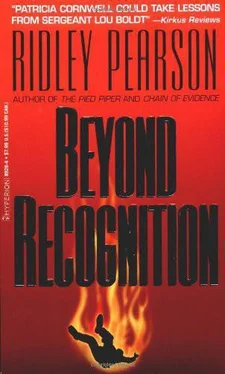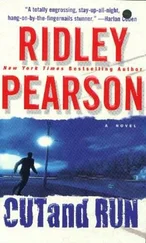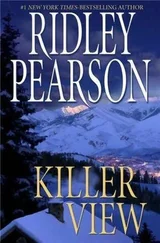Ridley Pearson - Beyond Recognition
Здесь есть возможность читать онлайн «Ridley Pearson - Beyond Recognition» весь текст электронной книги совершенно бесплатно (целиком полную версию без сокращений). В некоторых случаях можно слушать аудио, скачать через торрент в формате fb2 и присутствует краткое содержание. Жанр: Триллер, на английском языке. Описание произведения, (предисловие) а так же отзывы посетителей доступны на портале библиотеки ЛибКат.
- Название:Beyond Recognition
- Автор:
- Жанр:
- Год:неизвестен
- ISBN:нет данных
- Рейтинг книги:5 / 5. Голосов: 1
-
Избранное:Добавить в избранное
- Отзывы:
-
Ваша оценка:
- 100
- 1
- 2
- 3
- 4
- 5
Beyond Recognition: краткое содержание, описание и аннотация
Предлагаем к чтению аннотацию, описание, краткое содержание или предисловие (зависит от того, что написал сам автор книги «Beyond Recognition»). Если вы не нашли необходимую информацию о книге — напишите в комментариях, мы постараемся отыскать её.
Beyond Recognition — читать онлайн бесплатно полную книгу (весь текст) целиком
Ниже представлен текст книги, разбитый по страницам. Система сохранения места последней прочитанной страницы, позволяет с удобством читать онлайн бесплатно книгу «Beyond Recognition», без необходимости каждый раз заново искать на чём Вы остановились. Поставьте закладку, и сможете в любой момент перейти на страницу, на которой закончили чтение.
Интервал:
Закладка:
“Sure thing,” Boldt said.
“Bahan and I had a parley with a couple of the task force boys-”
“Was Garman there?” Boldt interrupted.
“As a matter of fact, he was. You know him?”
“Not well,” Boldt answered. “Go on.”
“These Marshal Five guys are older by a few years, but they’re wiser too. There’s five thousand firefighters in this city, assigned to forty-two stationhouses. There are only seven Marshal Fives, okay? Between them they’ve got maybe two hundred years’ experience on the line. I say this for your own education, Sergeant. Forgive me if I’m telling you something you already know.”
“No, no,” Boldt corrected. “I appreciate it. Go on,” he repeated. He felt anxious about these findings. Fidler’s setup had left him guessing.
“A fire inspector, a Marshal Five, follows a burn to its area of origin, hoping to lift samples of the accelerant for the chemists. As you know, the Enwright fire was a bastard because the area of origin was nearly entirely destroyed. Maybe that explains it, and maybe not, but the guys on the task force think not. The thing of it is, Sergeant, the lab report is going to come back negative for hydrocarbons. That’s about the gist of it. I imagine in your area of expertise it would be like finding a drowned body with no water in the lungs. Quite frankly, it’s baffling.”
“What’s it mean?” Boldt asked.
“Honestly? Not much. But it won’t look good. Our best defense to the press is that we didn’t locate a good pour, so the analysis came back negative. It also happens to be the truth. But we did locate the spalling and the blue concrete, and that sure as hell should test positive for accelerant, and that’s the baffling part, if you ask me. Why no hydrocarbons, no petroleum products whatsoever? This is not the end of the story, not by any means. The collective wisdom of the Marshal Five boys is that we repackage some new samples and send them off to Chestnut Grove, the ATF lab. They’re good guys, great chemists. And Chestnut Grove specializes in arson and bombs. We ask for a rush, maybe we hear back in a couple of weeks. Most likely they pick up what we missed.”
Fidler paused, training his rich brown eyes on the sergeant, allowing a moment for his words to be absorbed. He then said, “You asked what it means. There had to be one hell of an accelerant in that fire. You don’t go to eleven hundred feet and turn concrete blue with only a match set to the two-by-fours. We could have missed it for any number of reasons. Best bet is to send it to the Feds and try again. They’ll scare up something.”
“Hydrocarbons,” Boldt provided for him. “They’ll find hydrocarbons.”
“It would certainly surprise me if they didn’t.”
“And if they don’t?” Boldt inquired.
“Let’s take it one square at a time.”
Boldt didn’t like the sound of that. “Maybe you should brief me, just in case.”
“Clutter your mind with worthless facts? What kind of person does that?”
“Ignorance is bliss?” Boldt asked. He suddenly felt uncomfortable with Fidler. Was he trying to hide something?
“If you want to take a master’s in pyrotechnic chemistry, that’s your business, Sergeant. Me? I like waiting for the lab reports and learning what it is I need to know for that particular burn. How were you in organic chemistry?”
“Next question,” said Boldt. He didn’t want to admit that as a junior in high school he had taken the senior chemistry course and earned one of two A’s given out for the year. It would mark him as a nerd. His comment caused Fidler to grin; the man needed some dentistry. Boldt said, “Blue cement and negative lab reports. Is that about the sum of it?” He paused. “Tell me, Sid, what do you think of the stuff that Garman received? Related or not?”
“The timing’s good. Weird note. Don’t know about the plastic.”
“I sent it all downstairs for analysis.”
“What’s your opinion?” Fidler asked.
“We would give it weight in a straight homicide, especially if the victim had received it.”
“But if you had received it?”
Boldt answered, “Yeah, I suppose if I’d received it I might give it weight too.”
“So it’s Garman getting it that bugs you.”
“He’s on the arson task force, I understand that. But Enwright’s home isn’t in his district.”
“His battalion,” Fidler corrected.
“Whatever. So if it’s legitimate, why did the torch send it to a different Marshal Five? I mean, if he knows so much about the internal structure of fire investigations, why send it to the wrong guy?”
Fidler’s face screwed up into a knot and his lips pursed. “Hadn’t thought about it that way.”
“It bothers me,” Boldt said.
“Yeah, right. You’re right,” Fidler agreed, “he screwed up.”
“People screw up for two reasons, Sid. Either they make a mistake or you make a mistake in thinking that they made a mistake.”
“Accidentally or intentionally.”
“Exactly. And if it’s intentional, it isn’t their mistake at all, it’s only yours for reading it that way.”
“So if it wasn’t a mistake?” Fidler tested. “If he meant to send it to Garman?”
“Why Garman?” Boldt asked. “You see?” He could watch Fidler’s thought processes displayed across his face. “It may narrow down the search for us. Someone Garman put away? Someone he knows, works with?”
“Shit,” Fidler gasped. “That complicates things. It takes us away from the woman-”
“First things first,” Boldt replied, interrupting. “I start with getting to know Dorothy Enwright, post facto. Things are rarely as complicated as they appear at first glance.”
“And me?” Fidler asked.
“I’ll tell you what: Why don’t you get to know Steven Garman?” Boldt instructed, adding, as an afterthought, “Just in case.”
The two Enwright women, mother and sister, had refused Boldt’s efforts for a meeting in the mother’s home, a condominium in Redmond. Despite the drive, Boldt had wanted the mother on relaxed ground, a place she wouldn’t be afraid to cry, a place she might be more open and honest. But the victim’s sister worked downtown, and Boldt’s attempts to separate the two women into different interviews failed, and in the end he agreed to meet them at four o’clock in the Garden Court of the Four Seasons Olympic hotel. He asked them both to bring photographs.
Located on Seattle’s fashionable 5th Avenue, the Olympic was one of the country’s few remaining grand hotels, ornate, opulent, and spacious, restored lovingly and sparing no expense. The lobby was glorious, the service impeccable. Boldt was no stranger to the place. His love of a formal tea service brought him there several times a year, in spite of the fourteen-dollar price tag. It was one of the few treats he allowed himself. His colleagues spent their money on Scotch and ball games. When he could afford it, Boldt preferred tea at the Four Seasons or dinner and a show at Jazz Alley.
But he knew the hotel well and welcomed the soothing ambiance of the ficus trees, the gentle sound of the running water, the thirty-foot ceilings, and the classical piano. The room was open, in three tiers, and smelled of a flower garden. The women servers all wore shimmering gold dress uniforms, while the waiters wore white jackets. The hum of active conversation was muted by the plush carpet. Boldt gave the attractive receptionist, an Asian woman in her twenties, the name Magpeace, Dorothy Enwright’s maiden name. She seated him on the second level near the waterfall on a love seat in front of a table with starched linen and bone china.
Mrs. Harriet Magpeace and her thirty-year-old daughter, Claudia, entered ten minutes later, wearing grim faces to the table. They shook hands all around. Boldt held the chair for Harriet. His notebook lay open on the table. It seemed odd to order tea and scones and cucumber sandwiches on the edge of discussing a young woman’s brutal murder, but he knew from experience that people seek comfort in extremely individual ways at such times. He’d gone on a long walk once with the husband of one murder victim, the man claiming he had barely stopped walking since the death: all hours of day and night, any destination, it didn’t matter. Two weeks later, Boldt had arrested him for the murder.
Читать дальшеИнтервал:
Закладка:
Похожие книги на «Beyond Recognition»
Представляем Вашему вниманию похожие книги на «Beyond Recognition» списком для выбора. Мы отобрали схожую по названию и смыслу литературу в надежде предоставить читателям больше вариантов отыскать новые, интересные, ещё непрочитанные произведения.
Обсуждение, отзывы о книге «Beyond Recognition» и просто собственные мнения читателей. Оставьте ваши комментарии, напишите, что Вы думаете о произведении, его смысле или главных героях. Укажите что конкретно понравилось, а что нет, и почему Вы так считаете.












